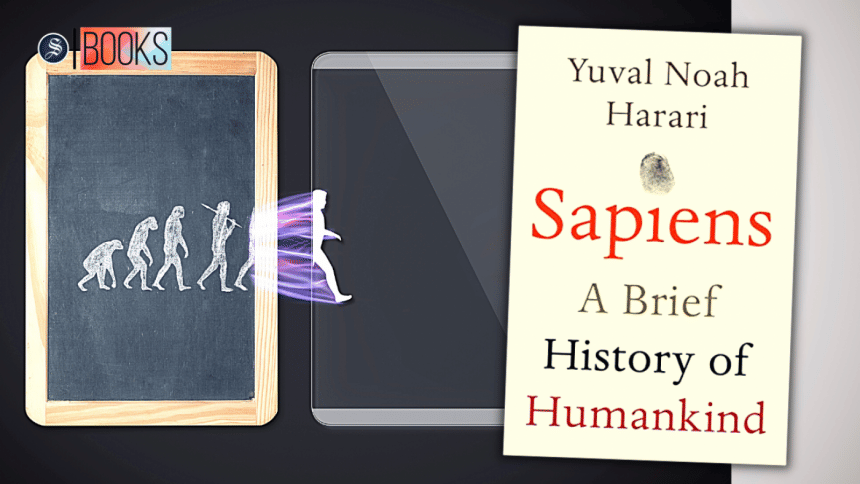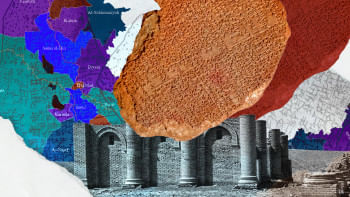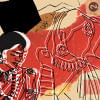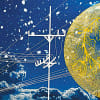Yuval Noah Harari’s take on the history of humanity

In Sapiens: A Brief History of Humankind (Vintage, 2011), Dr Yuval Noah Harari, a professor at The Hebrew University of Jerusalem who specialises in world history, takes us through the history of mankind. In the book, the emergence of the present intelligent humans from the first primitive cavemen is highlighted and critiqued.
The book is almost like a scripture to bookworms. Microsoft co-founder Bill Gates called it his first choice, and the former United States President Barack Obama said it is at the top of his list of favourite books.
Journalist and columnist Harari suggests that if we went in search of primaeval Indian culture, we would see that the Aryans came to the Indian subcontinent 3,000 years ago; they came from West Asia. Even the Dravidians before them were not local. Before the Dravidians were the Nishadas. The culture of the latter two were much more advanced than that of Aryans.
But the Aryans came and began to strategically dominate the locals. However, the origin of the Mohenjo-daro civilization has not yet been ascertained, so, looking for the original ancient Indians, he notes, is just a "mirage".
About the history of the ancient people, Harari skilfully depicts the men and the women, nature, and the environment of prehistoric times, their patterns, and the characteristics of the rough life in the wild-mountainous region.
The existence of our genus, Homo sapiens, was found in East Africa about 150,000 years ago. Homo sapiens arrived in the Arabian Peninsula from East Africa 70,000 years ago. Later, they spread throughout Europe.
At that time, the Homo sapiens, according to the scientific "inter-reproductive theory", were involved in some instances of breeding with the wild people living in those areas.
Since the agrarian revolution, human society has started expanding to a great extent. In order to maintain social order, certain rules and norms had to be followed so that thousands of strangers could blend in with each other. This network, created on instincts, was culture.
Harari writes that the first Pharaoh annexed the entire Egypt in around 3000 BC, and they believed that barbarians lived on the other side of Egypt.
Empires have been the world's most common form of political organisation for the last 2,500 years. Religion is the third great unifier of humankind, alongside money and empires, the book posits. Hindus believe in polytheism, that a single entity called "paramatma" controls the innumerable gods and goddesses, demons, mankind, and the biological and material world.
Monotheism first developed in Egypt when Pharaoh Akhenaten, in 350 BC, declared that Aten, the powerful god of all the Egyptian gods, was controlling the universe. With his death, the practice ceased.
Most historians believe that monotheistic Islam originated in the Arabian Peninsula at the start of the 7th century CE. Later, the religion spread from Arabia to the Indian subcontinent, crossing the Atlantic Ocean.
Since then, monotheism has played an important role in world history. Author Harari writes in more detail that there are 200 crores of Christians and 125 crores of Muslims in the world.
The most important moment of the Scientific Revolution came at 5:29:53 PM on July 16, 1945. Scientists first detonated a nuclear bomb at Alamogordo in New Mexico. Following the explosion, it was considered that humans not only could change the course of history but also gained the power to destroy the whole world.
The author also writes about Gilgamesh, who is considered to be the first poet of mankind. The ancient Babylonian king tried to conquer death and he mentioned his expedition for immortality in his epic. But all his efforts to conquer death failed.
He came to realise that death was an inevitable consequence as decreed by God during creation. There is no way to get rid of it. People must accept fate.
In total, today's human civilization is the result of 1 million years' evolution. Even 70,000 years ago, Homo sapiens remained an insignificant creature in a corner of Africa.
Over the next millenniums, they became the masters of their own planet and became an "iconic terror". Today, they are on the verge of becoming "gods". Their activities are endangering the lives of other animals on the planet as well, Yuval Noah Harari states.
We have been able to improve a lot but have we been able to reduce famines, epidemics, wars, and develop the environment?
Sapiens has so far been translated into as many as 50 languages, including Bangla by Syed Fayez Ahmed and Protyasha Prachurya, and has become the best-seller at international book fairs in the UK, Spain, Slovenia, and Taiwan.
Md Jamat Ali is a contributor.
The review has been translated from Bangla by Sk Mehedi Hassan.

 For all latest news, follow The Daily Star's Google News channel.
For all latest news, follow The Daily Star's Google News channel. 











Comments